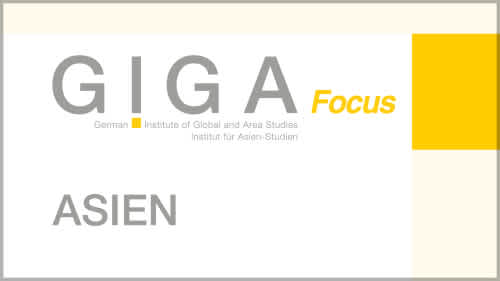- Home
- Publications
- GIGA Focus
- Oligarch vs. Nationalist: Ukraine’s 2014 Parliamentary Elections
GIGA Focus International Edition English
Oligarch vs. Nationalist: Ukraine’s 2014 Parliamentary Elections
Number 2 | 2015 | ISSN: 2196-3940
Ukraine’s October 2014 elections resulted in a parliament divided between three new major power blocs: the Poroshenko Bloc, the People’s Front, and the Opposition Bloc. Formed from the atomized remnants of Ukraine’s pre-Maidan parliamentary landscape, the new parties differ strongly in their bases and visions for the future of Ukraine.
Analysis
Ukraine transitioned from a bipolar party system, mainly based on the regional patronage networks of prominent oligarchs from western and eastern Ukraine, to a post-Maidan electoral landscape where the ruling Poroshenko Bloc depends on an uneasy alliance with the activist nationalists of the People’s Front to advance badly needed economic and security reforms.
The end of the old party system had the positive outcome of bringing to power a more technocratic administration that has the chance to preserve Ukrainian national unity and steer the country toward transparency and prosperity.
Current challenges are the fragility of the ruling coalition, which can only gain legitimacy by improving economic conditions and avoiding corruption, and the extreme-right tendencies of some volunteer units fighting on behalf of the government in the Donbass.
The tense February 2015 Minsk II peace accord and the threat of Russia deepening its support for the separatists is likely to further damage the Ukrainian government’s dwindling resources and its capacity for reform.
Footnotes
Regional Institutes
Research Programmes
How to cite this article
Burilkov, Alexandr (2015), Oligarch vs. Nationalist: Ukraine’s 2014 Parliamentary Elections, GIGA Focus International Edition English, 2, Hamburg: German Institute for Global and Area Studies (GIGA), http://nbn-resolving.de/urn:nbn:de:0168-ssoar-430622
Imprint
The GIGA Focus is an Open Access publication and can be read on the Internet and downloaded free of charge at www.giga-hamburg.de/en/publications/giga-focus. According to the conditions of the Creative-Commons license Attribution-No Derivative Works 3.0, this publication may be freely duplicated, circulated, and made accessible to the public. The particular conditions include the correct indication of the initial publication as GIGA Focus and no changes in or abbreviation of texts.
The German Institute for Global and Area Studies (GIGA) – Leibniz-Institut für Globale und Regionale Studien in Hamburg publishes the Focus series on Africa, Asia, Latin America, the Middle East and global issues. The GIGA Focus is edited and published by the GIGA. The views and opinions expressed are solely those of the authors and do not necessarily reflect those of the institute. Authors alone are responsible for the content of their articles. GIGA and the authors cannot be held liable for any errors and omissions, or for any consequences arising from the use of the information provided.






